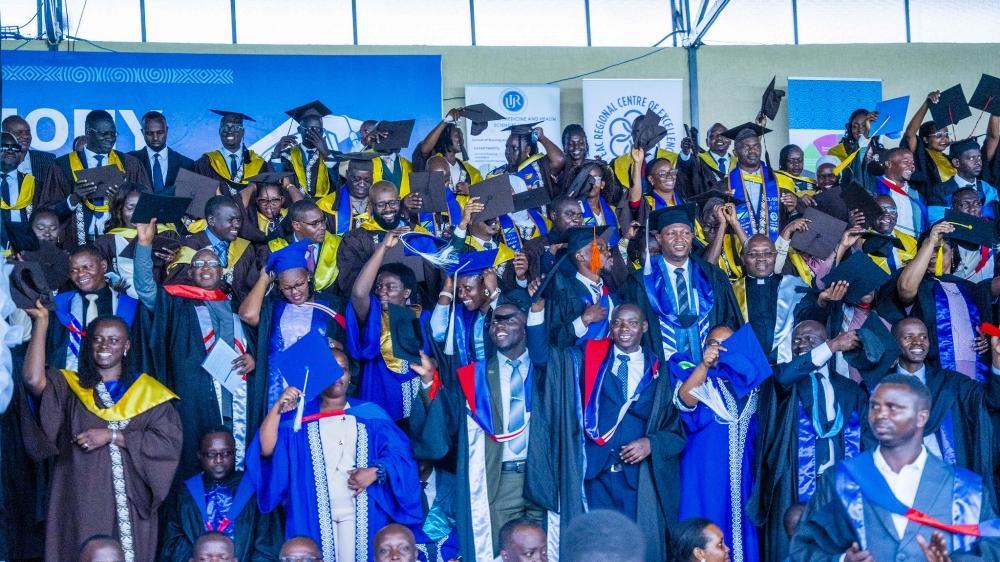Africa-Press – Rwanda. The sight of thousands of young graduates draped in gowns, beaming with pride as they tossed their caps into the air at the University of Rwanda’s 11th graduation ceremony, was a moment of collective triumph.
Nearly 10,000 students crossed the stage last week, a testament to the country’s expanding access to higher education and the sacrifices made by families to see their children reach this milestone. For the graduates, it marks the end of one journey and the beginning of another chapter; into a world where their education will be tested not by exams, but by reality itself.
Yet, amid the celebration, a sobering truth emerges. The job market into which these graduates now enter is already strained. Formal employment opportunities remain limited, and the thousands more who will soon graduate from private universities across the country will only deepen the competition for the few openings available.
This is not a uniquely Rwandan problem, but a continental one. Education systems continue to produce degree-holders faster than economies can create jobs. The result is a generation of young people full of ambition but uncertain of where to channel it.
This moment calls for a national reflection on what it truly means to educate. It is not enough to celebrate the number of graduates; we must question whether our education system is equipping them to navigate, innovate, and build. The world no longer rewards credentials alone. It rewards creativity, initiative, and problem-solving. For Rwanda’s youth to thrive, education must shift its focus from producing job seekers to nurturing job creators.
That shift begins long before university. The foundations of entrepreneurship, curiosity, and resilience must be laid in early childhood and reinforced through every stage of learning. Schools should not only teach students to absorb knowledge, but to apply it — to identify needs in their communities, to design solutions, to take risks, and to collaborate.
Universities, in turn, must deepen partnerships with industry, incubate ideas, and reward innovation, not just academic performance.
Fortunately, the Competence Based Curriculum rolled out a few years back has this in mind, and as we progress, its products will reflect this new reality.
The thousands who graduated this week represent Rwanda’s greatest resource. Their success is the nation’s success. But for that success to translate into shared prosperity, we must reimagine education as a launchpad for creators, not competitors.
The true measure of progress will not be how many graduate, but how many create enterprises, innovations, and opportunities that lift others along the way.
Source: The New Times
For More News And Analysis About Rwanda Follow Africa-Press






